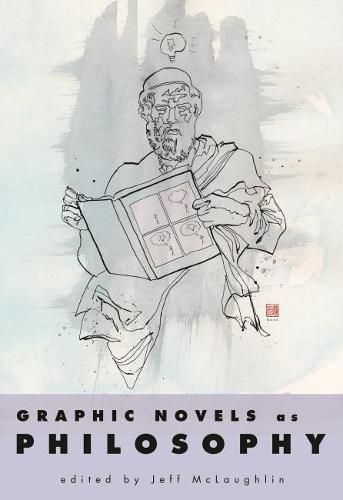Readings Newsletter
Become a Readings Member to make your shopping experience even easier.
Sign in or sign up for free!
You’re not far away from qualifying for FREE standard shipping within Australia
You’ve qualified for FREE standard shipping within Australia
The cart is loading…






This title is printed to order. This book may have been self-published. If so, we cannot guarantee the quality of the content. In the main most books will have gone through the editing process however some may not. We therefore suggest that you be aware of this before ordering this book. If in doubt check either the author or publisher’s details as we are unable to accept any returns unless they are faulty. Please contact us if you have any questions.
Contributions by Eric Bain-Selbo, Jeremy Barris, Maria Botero, Manuel Mandel Cabrera Jr., David J. Leichter, Ian MacRae, Alfonso Munoz-Corcuera, Corry Shores, and Jarkko S. Tuusvuori
In a follow-up to Comics as Philosophy, international contributors address two questions: Which philosophical insights, concepts, and tools can shed light on the graphic novel? And how can the graphic novel cast light on the concerns of philosophy? Each contributor ponders a well-known graphic novel to illuminate ways in which philosophy can untangle particular combinations of image and written word for deeper understanding.
Jeff McLaughlin collects a range of essays to examine notable graphic novels within the framework posited by these two questions. One essay discusses how a philosopher discovered that the panels in Jeff Lemire’s Essex County do not just replicate a philosophical argument, but they actually give evidence to an argument that could not have existed otherwise. Another essay reveals how Chris Ware’s manipulation of the medium demonstrates an important sense of time and experience. Still another describes why Maus tends to be more profound than later works that address the Holocaust because of, not in spite of, the fact that the characters are cartoon animals rather than human.
Other works contemplated include Will Eisner’s A Contract with God, Alan Moore’s V for Vendetta, Alison Bechdel’s Fun Home, and Joe Sacco’s Footnotes in Gaza. Mainly, each essay, contributor, graphic novelist, and artist are all doing the same thing: trying to tell us how the world is-at least from their point of view.
$9.00 standard shipping within Australia
FREE standard shipping within Australia for orders over $100.00
Express & International shipping calculated at checkout
This title is printed to order. This book may have been self-published. If so, we cannot guarantee the quality of the content. In the main most books will have gone through the editing process however some may not. We therefore suggest that you be aware of this before ordering this book. If in doubt check either the author or publisher’s details as we are unable to accept any returns unless they are faulty. Please contact us if you have any questions.
Contributions by Eric Bain-Selbo, Jeremy Barris, Maria Botero, Manuel Mandel Cabrera Jr., David J. Leichter, Ian MacRae, Alfonso Munoz-Corcuera, Corry Shores, and Jarkko S. Tuusvuori
In a follow-up to Comics as Philosophy, international contributors address two questions: Which philosophical insights, concepts, and tools can shed light on the graphic novel? And how can the graphic novel cast light on the concerns of philosophy? Each contributor ponders a well-known graphic novel to illuminate ways in which philosophy can untangle particular combinations of image and written word for deeper understanding.
Jeff McLaughlin collects a range of essays to examine notable graphic novels within the framework posited by these two questions. One essay discusses how a philosopher discovered that the panels in Jeff Lemire’s Essex County do not just replicate a philosophical argument, but they actually give evidence to an argument that could not have existed otherwise. Another essay reveals how Chris Ware’s manipulation of the medium demonstrates an important sense of time and experience. Still another describes why Maus tends to be more profound than later works that address the Holocaust because of, not in spite of, the fact that the characters are cartoon animals rather than human.
Other works contemplated include Will Eisner’s A Contract with God, Alan Moore’s V for Vendetta, Alison Bechdel’s Fun Home, and Joe Sacco’s Footnotes in Gaza. Mainly, each essay, contributor, graphic novelist, and artist are all doing the same thing: trying to tell us how the world is-at least from their point of view.